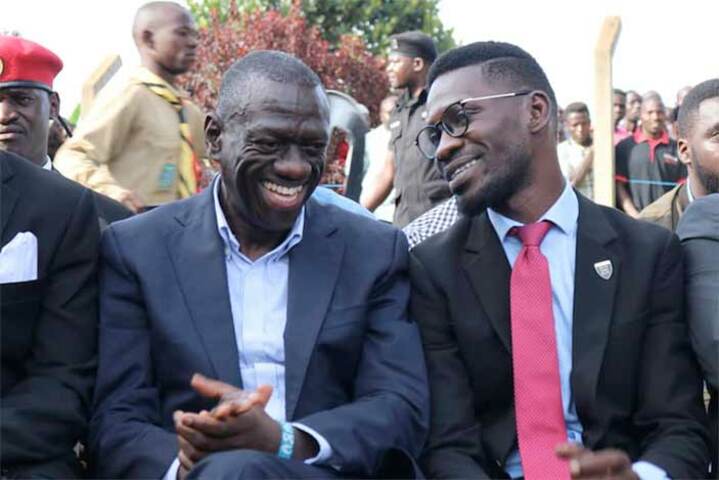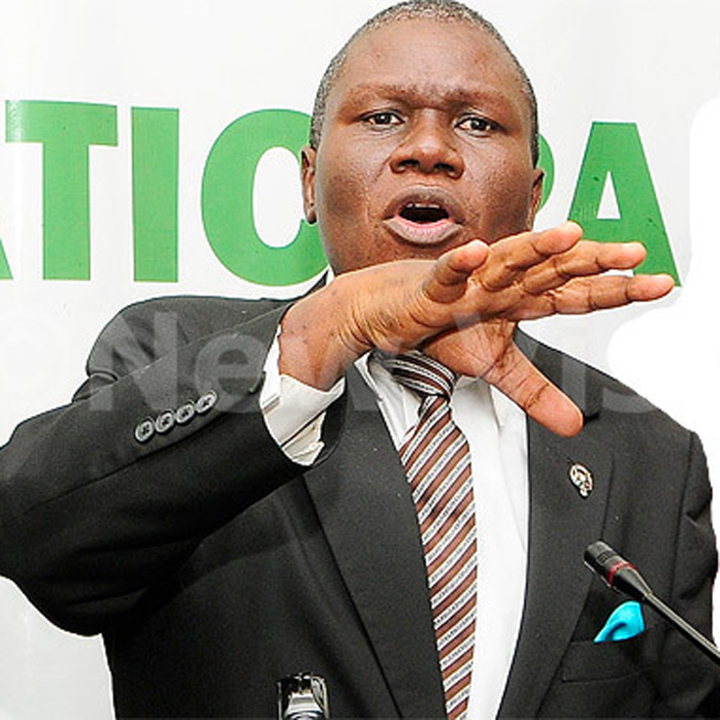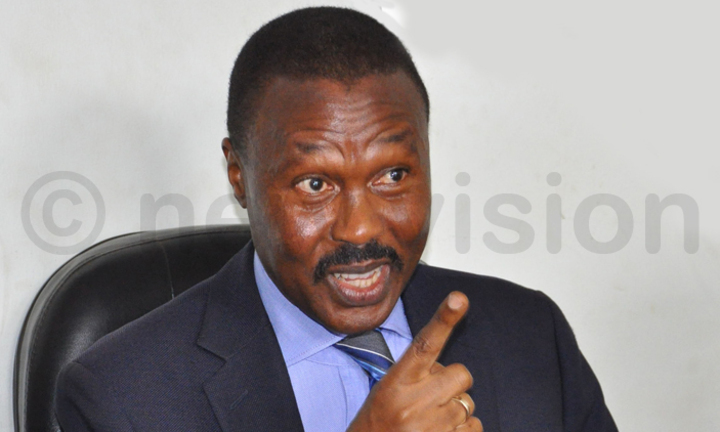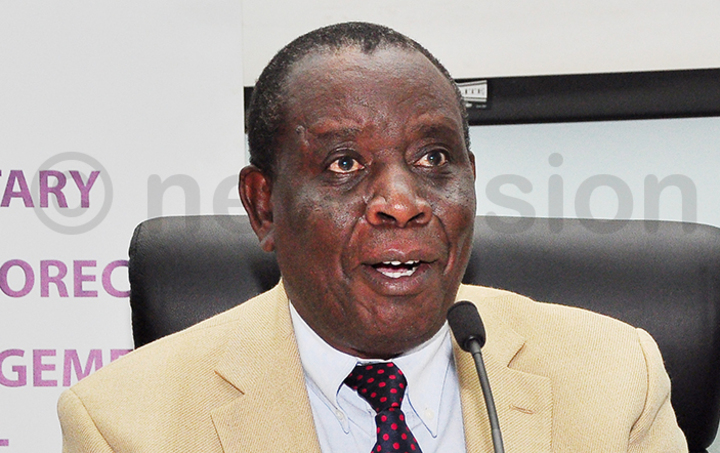COVID-19: What next for 2021 general elections?
Within the corridors of power, the current narrative is that given the dicey dynamics, there might be a postponement of the polls or at least, if the threat of the deadly virus is minimised, a scientific election.
The COVID-19 pandemic has thrown the preparations for the 2021 general elections and the entire electoral process off balance.
Within the corridors of power, the current narrative is that given the dicey dynamics, there might be a postponement of the polls or at least, if the threat of the deadly virus is minimised, a scientific election.
Already, the Electoral Commission (EC) has suspended some of the events within the 2021 electoral roadmap until further notice, cautioning that due to the impact of COVID-19, more adjustments to the roadmap will be implemented after consultations with all stakeholders.
The electoral activities such as the election of special interest groups (youth, elderly, and people with disability), which had been planned for April, have been suspended until further notice.
The call for the postponement of the polls or delay has also been hinted at by the Secretary General of the National Resistance Movement (NRM), Justine Kasule Lumumba, who said that the ball is completely in the hands of the scientists.
"We, in NRM, are political players. We cannot take a decision and say elections will be at this time without the advice of the scientists. All the Presidential directives that have been given so far have been based on the advice of scientists.
"Equally, when it comes to elections, it will depend on the numbers of COVID-19 patients as the tests go on and also most importantly the advice of scientist," Lumumba said recently during an Inter-Party Organisaton for Dialogue (IPOD) meeting.
MUSEVENI'S TAKE
When asked about the possibility of COVID-19 disrupting the election, President Yoweri Museveni in an interview with a local television, said it would be "dangerous" and even "madness" to conduct the 2021 general elections if Coronavirus is not contained by the end of July.
If the virus can stop by June or July, we can have the elections. We don't have to have a long campaign time. If it doesn't, it is very dangerous. To have elections when the virus is still there will be madness. Countries like Iran went on with the elections when the virus was still around and it caused a lot of problems. It is very dangerous," he said.
By June 14, the country had registered 686 COVID-19 cases, with 161 recoveries, a trend that signals an increase in the infections — although the President said during Budget day that the above figures contain some mix-ups occasioned by careless scientists who added negative samples to positive ones.
Museveni has since eased the lockdown in some sectors, especially public transport, but emphasised that stringent lockdown measures remain within 41 border districts.
The Government argues that what is important currently is not the elections but the safety of the population, which can be ascertained by the availability of massive testing capacity.

Experts and scientists believe that the earliest potent vaccine against COVID-19 is 18 months while trial vaccine will be developed by the end of this year.
Uganda, like many African countries, went under lockdown with a single case of Coronavirus. However, the country has started to relax the lockdown in a phased manner.
OPPOSITION STAND
Yet despite the rising COVID-19 infections in the country, the Opposition has outrightly rejected the call for postponement of elections.
In fact, some Opposition parties such as the Forum for Democratic Change (FDC), have asked party members intending to run for the 2021 General Elections to fill in forms and return them to the party headquarters by the end of June.
The FDC president, Patrick Oboi Amuriat, said the decision was endorsed by the party's National Executive Committee (NEC), which sat last week, to revise and approve the party's electoral roadmap.
"We should go in for these elections, and I am sure that as FDC, we are going to win. Why should we postpone elections? There is no any law that permits the extension of elections.
If the Government wants to postpone elections, they should announce a state of emergency and conduct a referendum," Amuriat said, suggesting that the EC should maintain the current roadmap and instead extend closure of voting time from 5:00pm to 6:00pm, create more polling centres and implement social distancing during voting to avoid overcrowding.

The president of JEEMA, who is also the Bugiri Municipality MP, Asuman Basalirwa, also urges government to follow the Constitution and not scientists when it comes to elections.
"President Museveni and scientists can only just advise but cannot determine the calendar.
We should utilise the current measures like wearing facemasks, social distancing and washing hands to conduct the elections. It is not only Uganda that is going to conduct elections during the pandemic. Other countries like Burundi and Mali have conducted elections. So, we should benchmark," he said.
NAÏVE OPPOSITION
However, going into an election, the Burundi style, Makerere University history and political don, Prof. Mwambutsya Ndebesa argues is "problematic" and "unrealistic" for a country such as Uganda with expansive mechanisms to monitor the disease and tame its spread.
"If the trend of the COVID-19 pandemic remains as it is then the elections should be postponed. Actually, I am surprised by some members of the Opposition who are insisting that the elections should take place because if they do in the current state of affairs, it will be the NRM to benefit. The NRM has always been on the ground, it has organizational structure — and all the advantages are in their favour," he said.
"Therefore, the Opposition is being naïve to oppose the postponement of elections, and I actually, suspect, the NRM might take advantage of this Opposition naivety and give elections a nod amidst this Pandemic," he added.
The President never declared a state of emergency but rather the raft of measures and guidelines rolled out to curb the spread of the COVID-19 were anchored in the Public Health Act. By doing so, observers argue, the measures have not affected the constitutionality of the body politic of the country.
However, Ndebesa argues that if the country goes into a second phase/wave of COVID-19 spread and massive infections, the President will declare the state of emergency.
"Declaring a state of emergency and amending the Constitution is not an issue. It can be done if need arises," he said.
THE LEGAL OPTIONS
In a recent interview with the New Vision on whether Museveni was right to side-step the state of emergency and use the Public Health Act to declare a national lockdown, legal scholar Prof. Fredrick Ssempebwa, said: "The health minister has the powers under the Public Health Act, which authorises the minister to make sub-laws or statutory instruments in case there is an outbreak of dangerous diseases.
"What we have been living under are these statutory instruments, whereby the minister, acting under the law, can restrict things like movement. The President simply announces what Cabinet had agreed that goes into this law."
Ssempebwa added that under a state of emergency, people's freedoms are completely curtailed.
In the same interview, Ssempebwa said COVID-19 cannot stop elections.
"Sticking to the electoral roadmap might be impossible, however, on the other hand, it's good for democracy. There will be many misunderstandings if elections are cancelled.
Cancelling an election is not an option. It is like seizing power like [Dr. Milton] Obote did in 1966. The tenure of Parliament, which determines our next election, is five years and it is due to expire. The reason the life of Parliament should be extended is in case of a serious emergency. But this is a pandemic, which can be managed," he said.
"President Museveni has managed it well and he is now in the process of easing the restrictions. So, there isn't a state of emergency that requires stopping an election," he added.
BATTLE FOR 2021
The battle for 2021 presidency is expected to attract President Yoweri Museveni, former FDC President, Dr. Col. Kizza Besigye, the leader of Alliance for National Transformation, Maj. Gen. Mugisha Muntu, former security minister, Lt. Gen. Henry Tumukunde, Democratic Party President, Norbert Mao and the Kyadondo East MP, Robert Kyagulanyi, who is also the leader of People Power pressure group, among others.
With everyone's eyes cast on the political ball, analysts argue that it would be actually good for the Opposition if the 2021 General Elections are postponed rather than allowing government to organise a scientific election by eliminating mass electoral campaigns.

The elections, Ndebesa told New Vision, are normally won in many ways but the major two are organisational and political advantages.
"The Opposition has got political advantages in their favour. NRM has got organisational advantages in its favour. Within the context of lockdown, organisational advantages supersede political ones.
"With political advantage, one needs to move around in order to rally people in order to achieve organisational advantage. But with COVID-19, one cannot move around or even talk to people at the grassroots. Therefore, the Opposition is naïve, they should actually, be the ones to ask for postponement," he said.
Rather than rooting for elections under the current situation, Ndebesa said, the Opposition should be rooting for an amendment of the Constitution to push for the extension of elections.

"They should go to Parliament and amend the Constitution and extend elections for another six months rather than being naïve. At this point we even don't know whether there will be phase two of COVID-19 infections as the lockdown is eased. So, why don't we wait for the vaccine before we go into electioneering," he said.
Ndebesa added: "They normally amend when there is no urgency, why not now when there is need and an essential reason of COVID-19? They should amend the Constitution and extend election for at least six months," he said, adding that by that time, it is expected that there will be a vaccine."